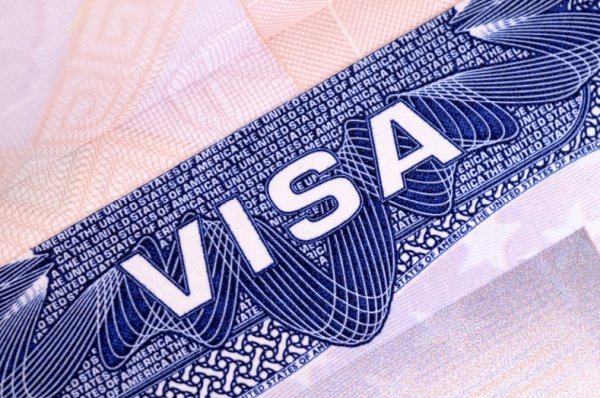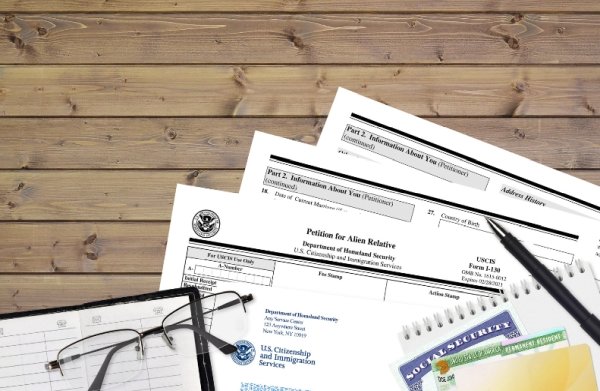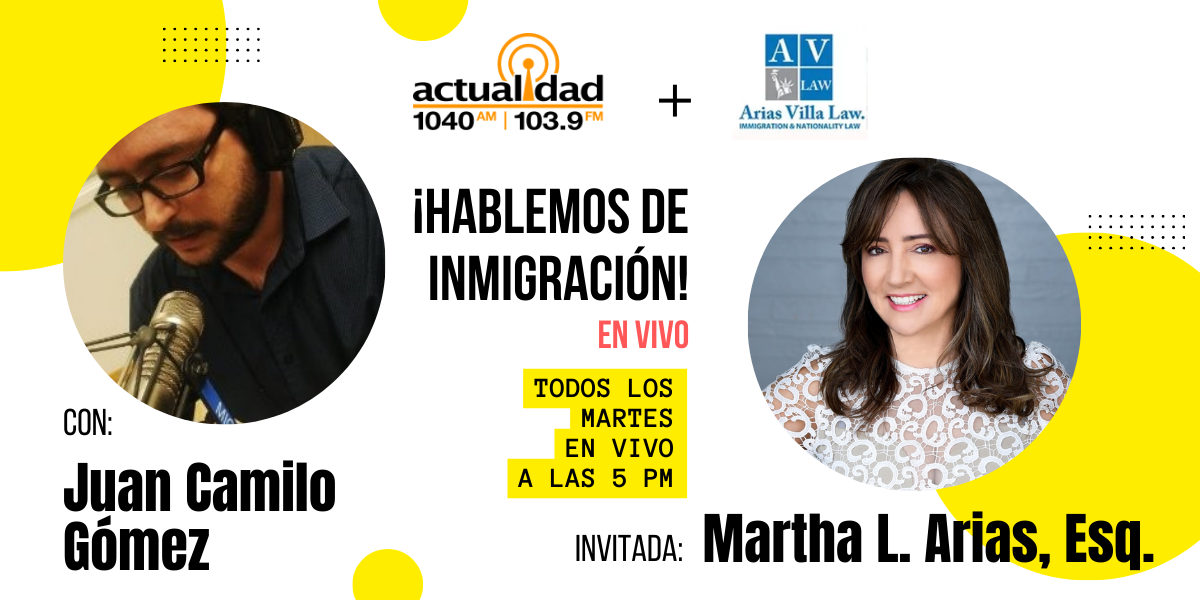In the vast landscape of the U.S. immigration process, numerous misconceptions often cloud the understanding of individuals navigating a complex journey. This short article aims to shed light on some of the most prevalent myths and provide clarity for those seeking accurate information.
Immediate Approval of Your Visa Application
Misconception
A prevalent belief surrounding the U.S. immigration process is that approval is instantaneous upon application submission. This myth contributes to unrealistic expectations and heightened frustration among applicants.

Factual Explanation
In reality, the U.S. immigration process is characterized by thoroughness and a high volume of applications. The United States Citizenship and Immigration Services (USCIS) receives a substantial number of requests, leading to a significant processing backlog. The timeline for approval varies depending on the visa type, individual circumstances, and the specific service center handling the case.
Understanding the processing times for each visa category is crucial for managing expectations. While some visas may have expedited processing options, expecting immediate approval can lead to disappointment. Patience is a virtue in the immigration journey, and applicants should prepare for a wait that aligns with the complexity of their case.
Navigating this myth requires a shift in mindset—from expecting immediacy to appreciating the meticulous evaluation process. Acknowledging the thoroughness of the review ensures that the application receives the attention it deserves, ultimately contributing to a more robust and fair immigration system.
Guaranteed Green Card for Every Applicant
Misconception
Another common misconception is the assumption that every applicant will secure a green card. This oversimplification neglects the stringent eligibility criteria and the multifaceted nature of the immigration process.

Factual Explanation
Obtaining a green card is not an automatic outcome for every applicant. The U.S. immigration system is designed to carefully assess an individual’s eligibility based on factors such as family relationships, employment status, refugee or asylum status, and other humanitarian reasons.
Meeting the specific criteria outlined by USCIS is fundamental to a successful application. Applicants must provide evidence supporting their eligibility and adhere to the documentation requirements associated with their chosen immigration category. Understanding that green card issuance is contingent upon meeting these criteria emphasizes the importance of meticulous preparation and a comprehensive understanding of one’s eligibility.
This myth underscores the necessity for applicants to approach the process with realistic expectations. A nuanced understanding of the eligibility criteria and a commitment to meeting those criteria significantly enhance the likelihood of a successful green card application.
Any Visa is Sufficient
Misconception
Some individuals believe that any visa will suffice for their intended stay in the United States, leading to the misconception that all visas are interchangeable.

Factual Explanation
Visa types are diverse and serve distinct purposes. The U.S. offers various visas, each tailored to specific activities such as tourism, business, education, or employment. Assuming that any visa will meet an individual’s needs overlooks the intricacies of the U.S. immigration system.
Choosing the right visa is critical for a smooth and legally compliant stay. Misusing or selecting an inappropriate visa can result in complications, including denial of entry or deportation. It is imperative to carefully assess the nature of the intended stay and select the visa category that aligns with those activities.
This misconception highlights the importance of informed decision-making in the visa application process. Applicants should thoroughly research and understand the nuances of each visa type to ensure that their chosen visa aligns with the purpose and duration of their stay in the U.S.
Student Visas Lead to Permanent Residency Automatically
Misconception
A widespread belief is that obtaining a student visa automatically paves the way for permanent residency in the United States.

Factual Explanation
While pursuing education in the U.S. is a common pathway to immigration, it does not guarantee automatic permanent residency. Student visas, such as the F-1 visa, are intended for individuals seeking academic or language training programs. Transitioning from a student visa to permanent residency involves a separate set of procedures and eligibility requirements.
The process typically includes employment-based immigration options or family-sponsored petitions. Understanding these pathways is crucial for individuals with aspirations of making the U.S. their permanent home after completing their education.
This myth underscores the importance of having a long-term immigration strategy. Students should be aware of the various routes available for transitioning from temporary student status to more permanent residency, allowing them to make informed decisions about their future in the U.S.
Over-documentation is Harmful
Misconception
There exists a misconception that providing an extensive amount of documentation in the immigration application process is counterproductive and may even be harmful to the case.

Factual Explanation
Contrary to this belief, over-documentation is not harmful; in fact, it can be beneficial. The U.S. immigration process relies on thorough documentation to establish eligibility and verify the information provided in the application. A well-documented case can expedite the process and reduce the likelihood of receiving requests for additional information from USCIS.
Applicants should view documentation as a means of strengthening their case. Providing clear, comprehensive evidence of their eligibility and meeting the specific requirements for their chosen visa category enhances the chances of a favorable outcome. It is essential to understand the documentation requirements associated with the selected visa and to present a well-organized and convincing case.
Dispelling this myth encourages applicants to approach the documentation process with diligence and attention to detail. Rather than fearing over-documentation, individuals should focus on providing a complete and accurate picture of their circumstances, reinforcing the credibility of their application.
Legal Representation is Unnecessary
Misconception
Some individuals believe that legal representation is unnecessary, especially for seemingly straightforward immigration cases.

Factual Explanation
Navigating the U.S. immigration system can be intricate, with constantly evolving regulations and procedures. While it is true that individuals can submit applications without legal representation, seeking the guidance of an immigration attorney significantly improves the likelihood of success.
Immigration lawyers possess the expertise to interpret complex immigration laws, ensuring that applications adhere to all requirements. They can provide valuable insights, strategize the best approach for a case, and address any legal challenges that may arise during the process.
Choosing to proceed without legal representation may lead to oversights or misunderstandings of legal nuances, potentially jeopardizing the success of an application. Recognizing the benefits of professional guidance highlights the importance of making informed decisions and increasing the chances of a positive outcome.
This dispels the myth that legal representation is unnecessary, emphasizing that even seemingly simple cases can benefit from the expertise and guidance of experienced immigration attorneys.
Any Job Qualifies for a Work Visa
Misconception
A common misconception is that any job qualifies an individual for a work visa in the U.S., overlooking the specific requirements associated with each visa category.

Factual Explanation
Not all jobs automatically qualify for work visas. The U.S. offers various work visa categories, each with its own set of requirements and criteria. Understanding these specific requirements is crucial for selecting the appropriate visa and avoiding potential complications in the application process.
Employment-based visas typically have specific criteria related to the nature of the job, the qualifications of the applicant, and the employer’s sponsorship. Assuming that any job automatically qualifies for a work visa oversimplifies the process and may lead to disappointment and delays.
This myth underscores the importance of conducting thorough research on the eligibility criteria for the desired work visa. Applicants should ensure that their employment aligns with the specific requirements of the chosen visa category to increase the likelihood of a successful application.
Changing Employers is Seamless
Misconception
There is a misconception that changing employers while on a work visa is a seamless process, requiring minimal effort.

Factual Explanation
Changing employers on a work visa involves a series of steps and approvals, and it is not an automatic or frictionless process. Individuals on work visas typically have a sponsor employer, and transitioning to a new employer requires filing a petition with USCIS.
The new employer must meet certain criteria, and the employee must ensure continuous compliance with visa regulations throughout the transition. Failure to follow the proper procedures can result in complications, including potential visa violations.
Understanding the intricacies of changing employers on a work visa dispels the myth of seamlessness. It emphasizes the need for careful planning, adherence to regulatory requirements, and timely submission of necessary documentation to facilitate a smooth transition without jeopardizing immigration status.
In conclusion, dispelling common misconceptions about the U.S. immigration process is essential for individuals embarking on this transformative journey. Armed with accurate information, applicants can navigate the intricacies with confidence, increasing their chances of a successful outcome. Remember, patience, thoroughness, and understanding the nuances of the process are key to a smoother immigration experience.










